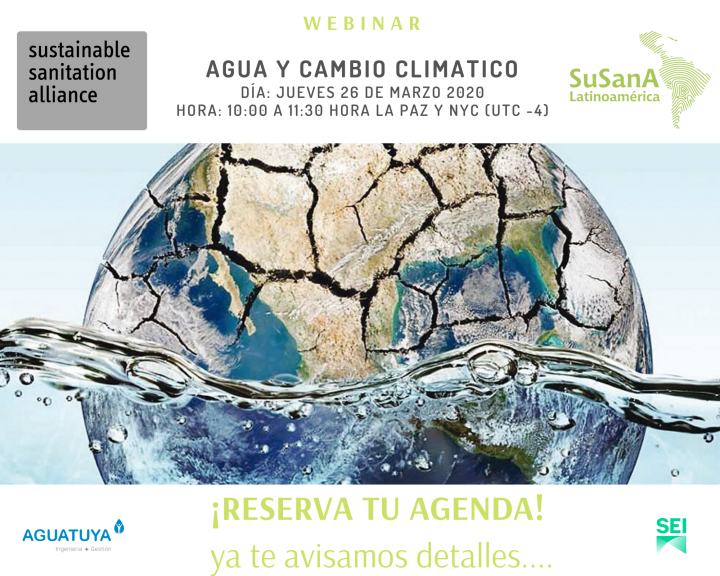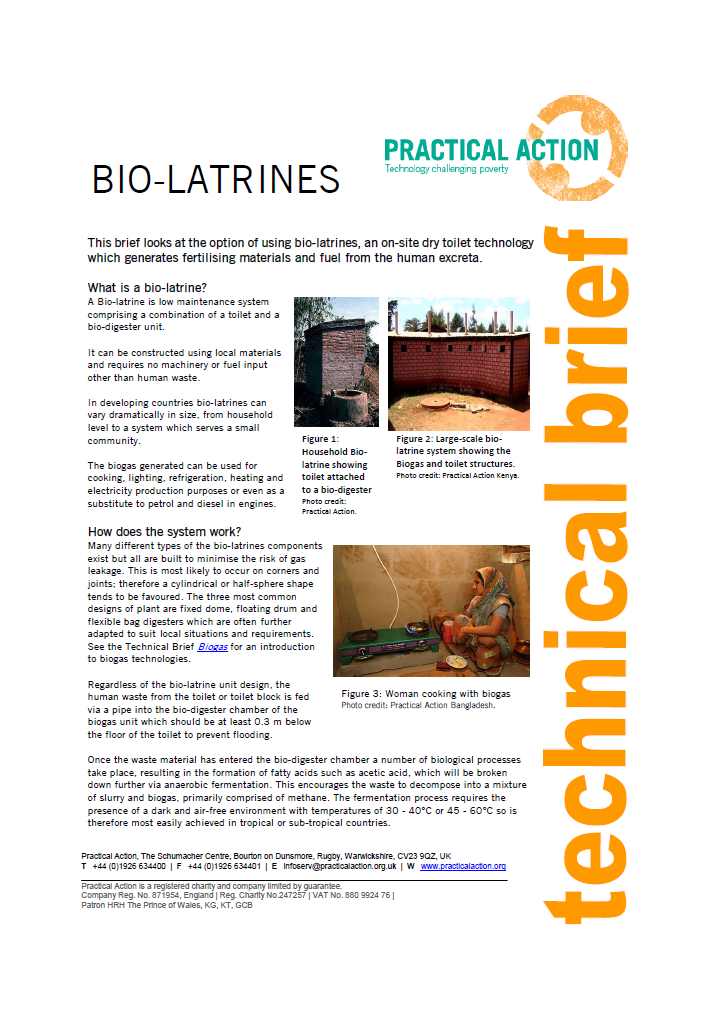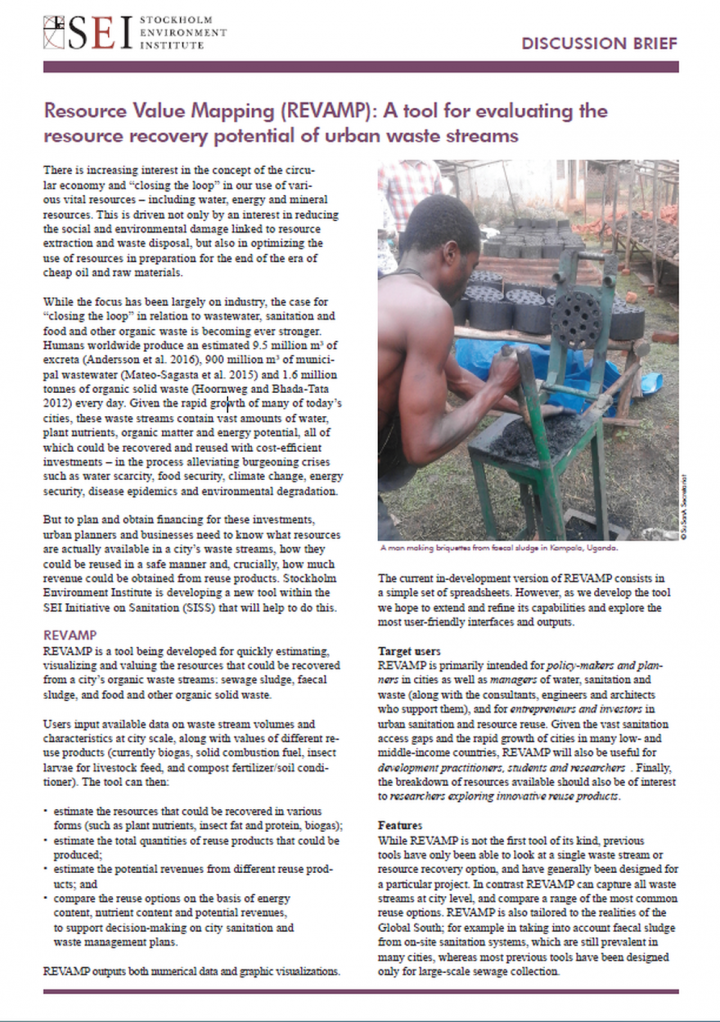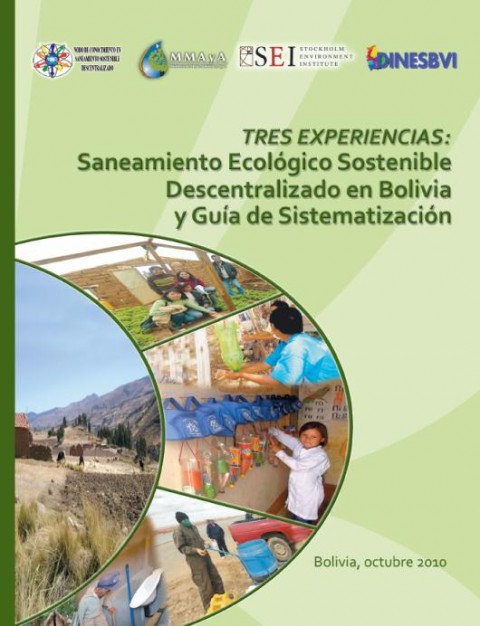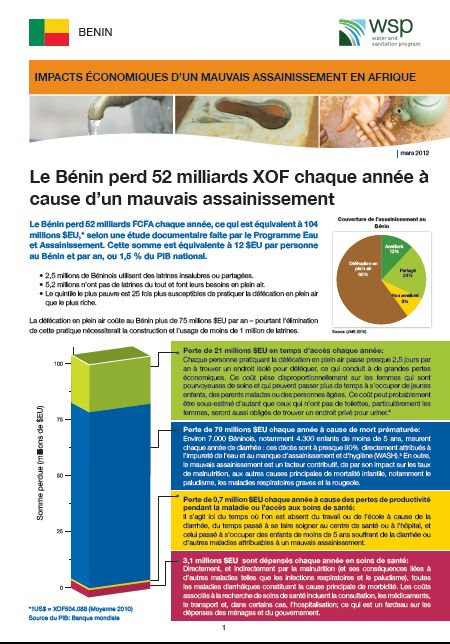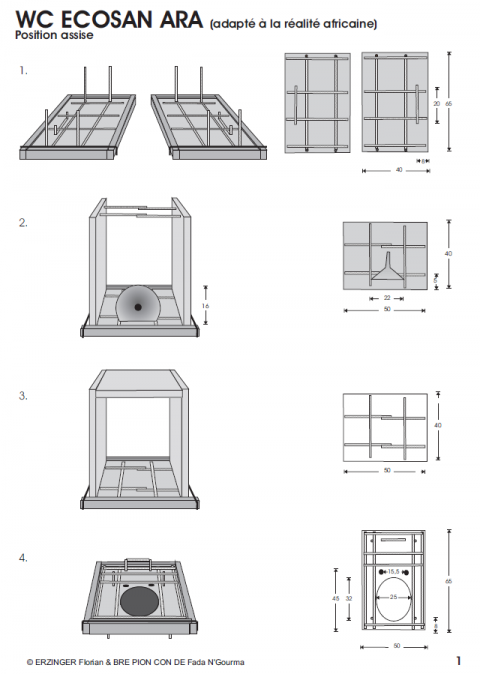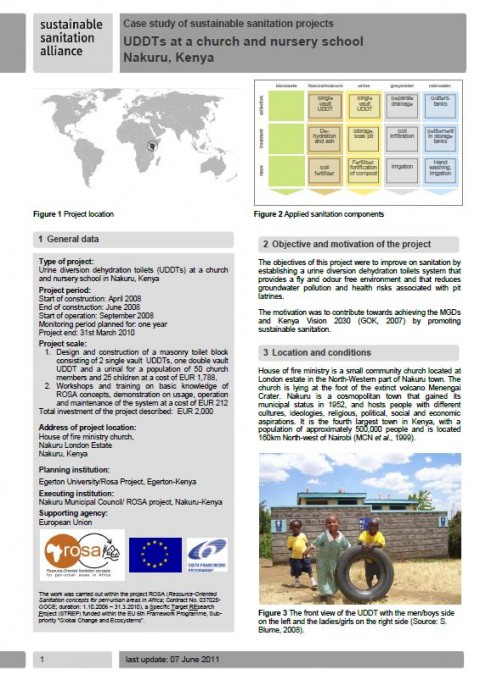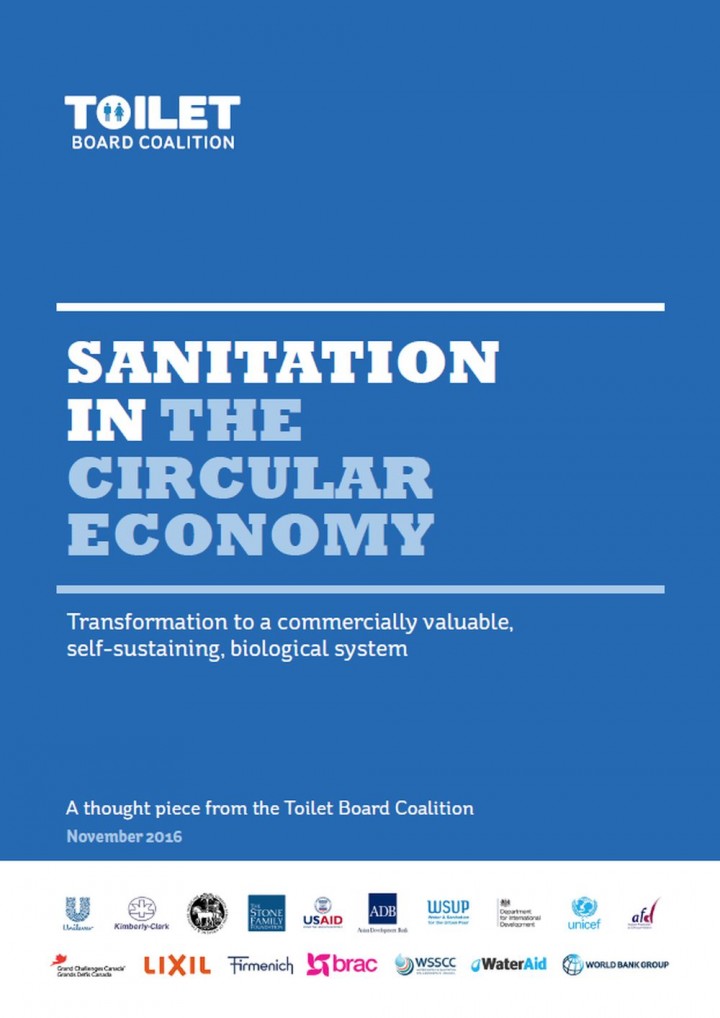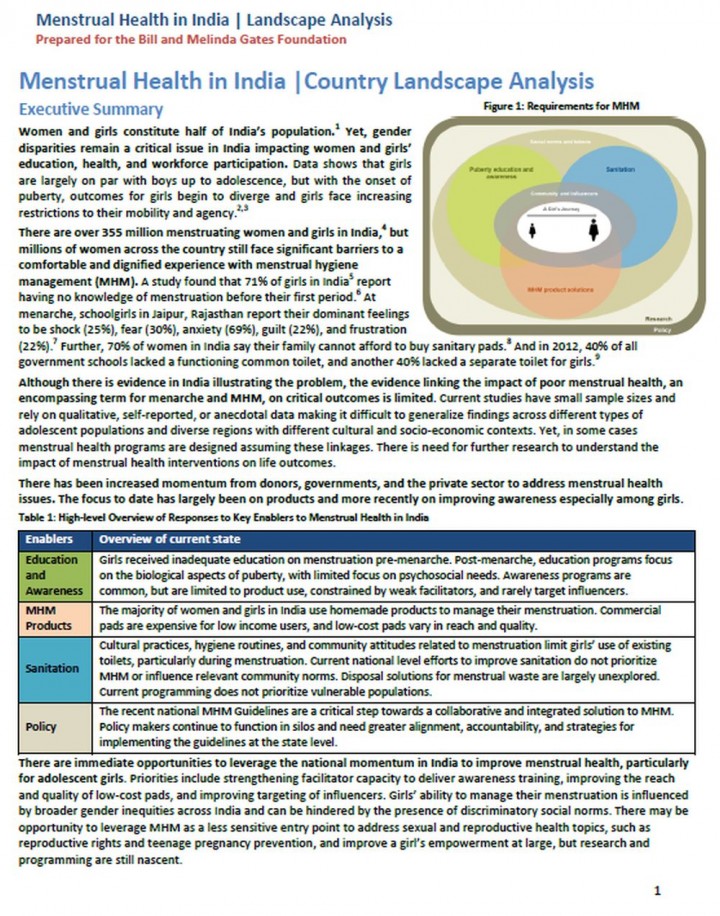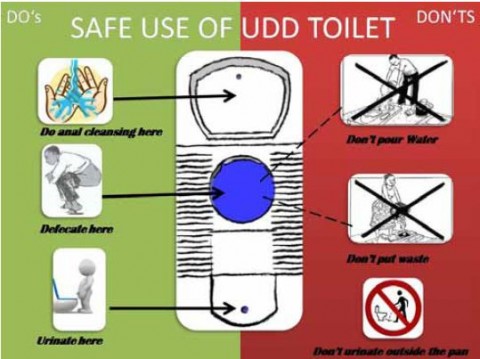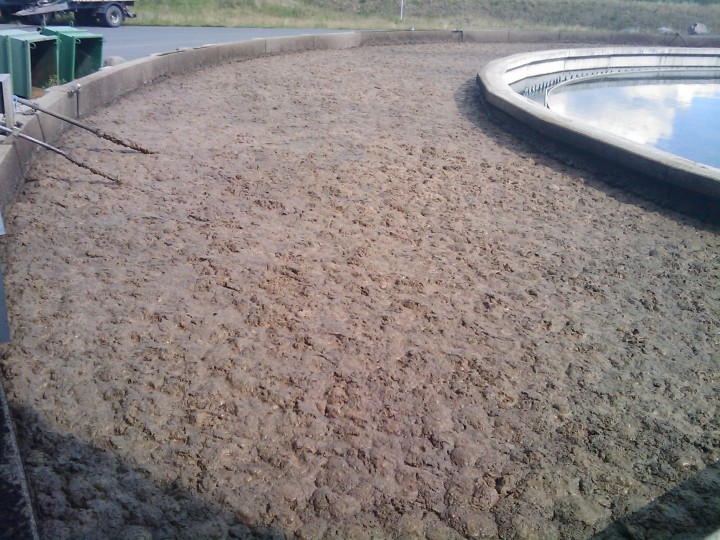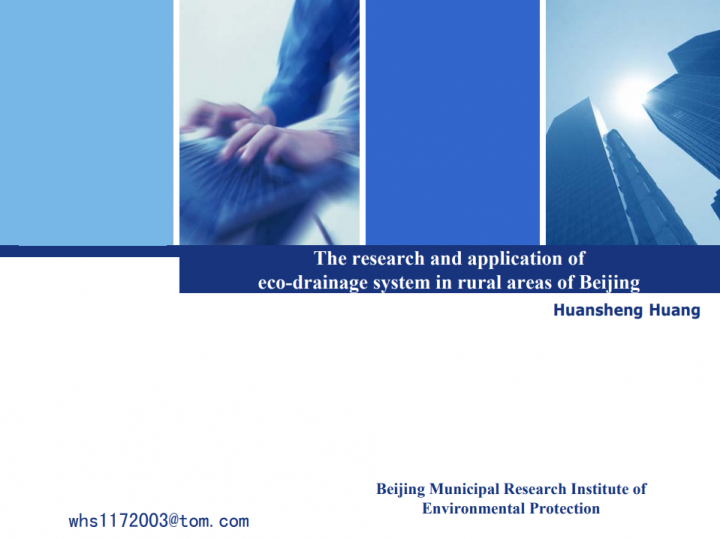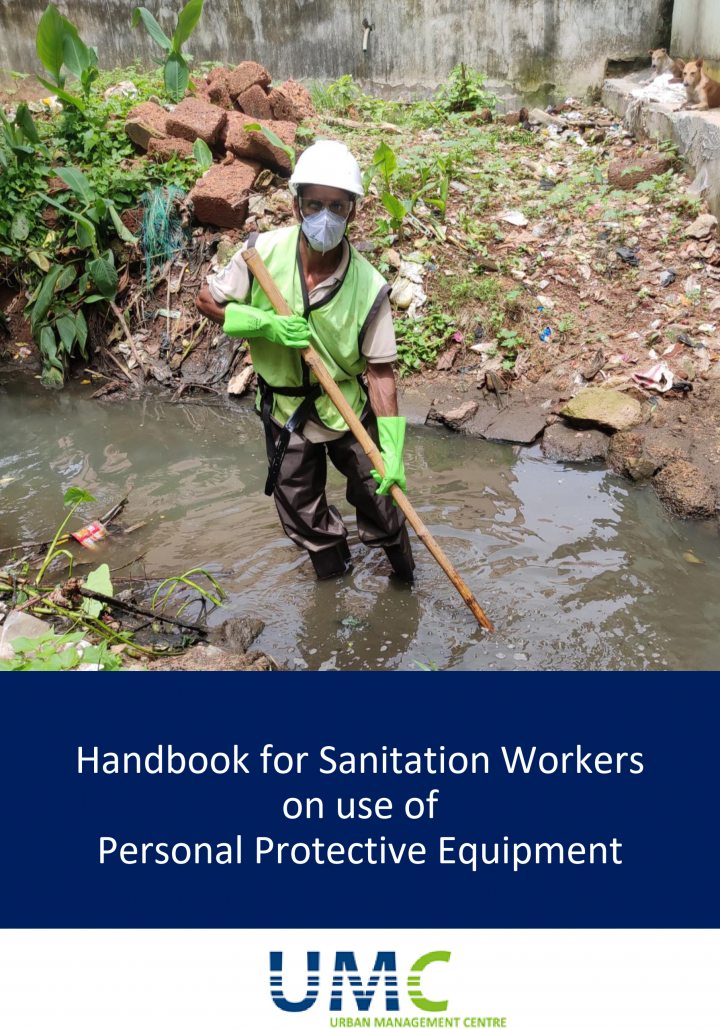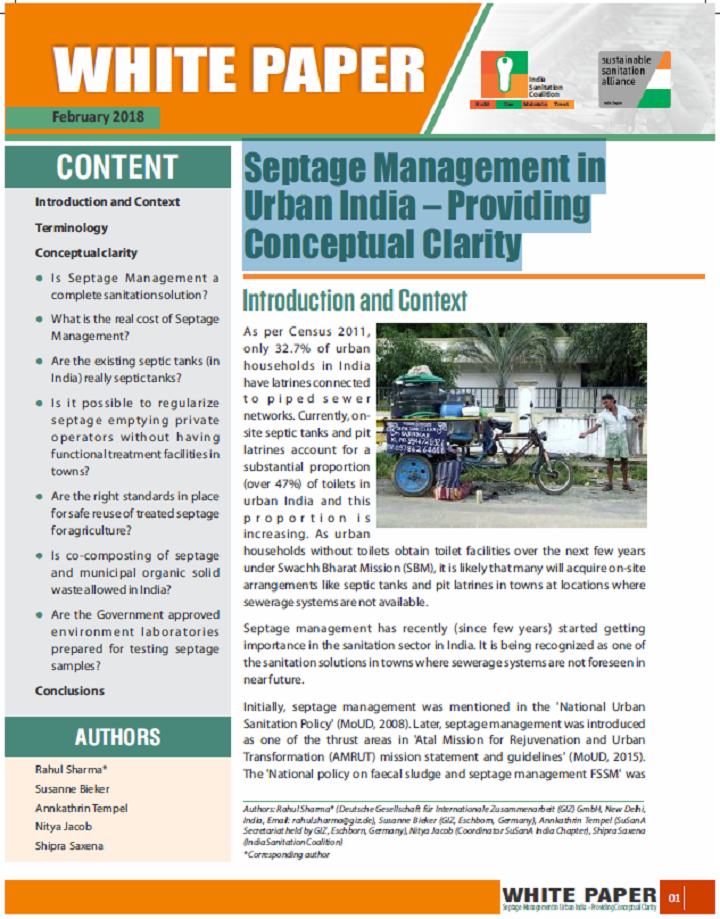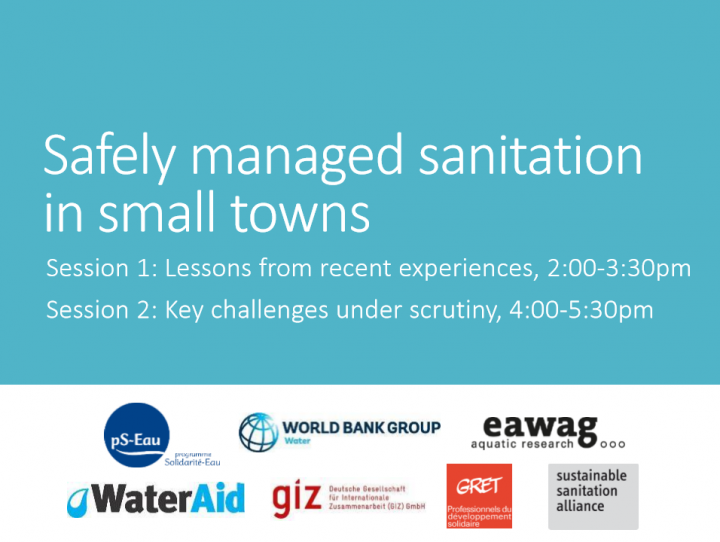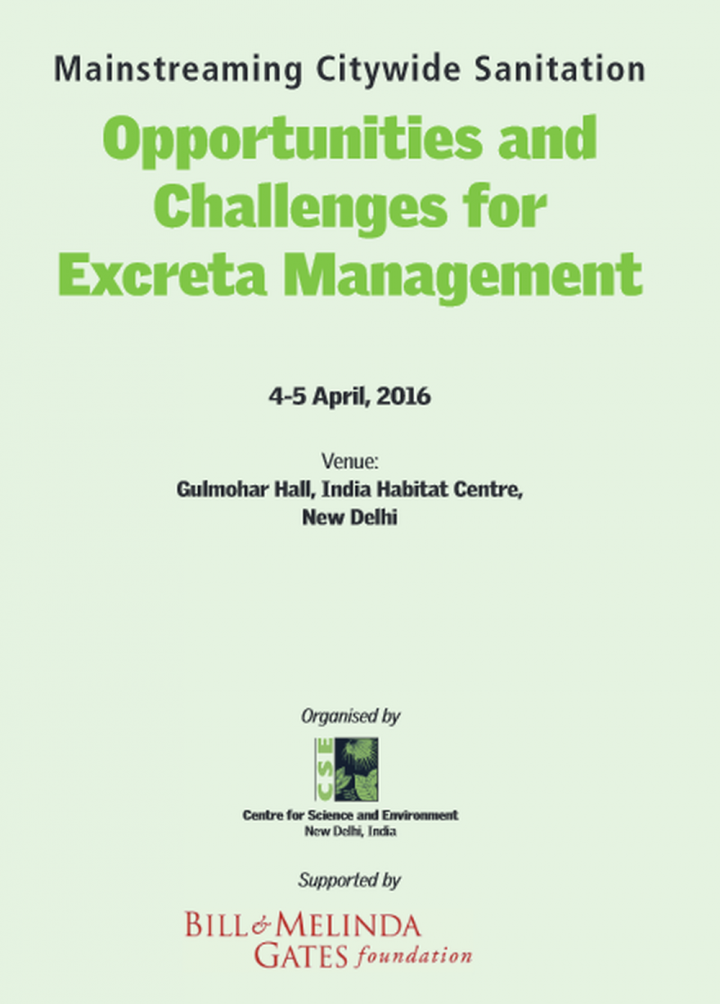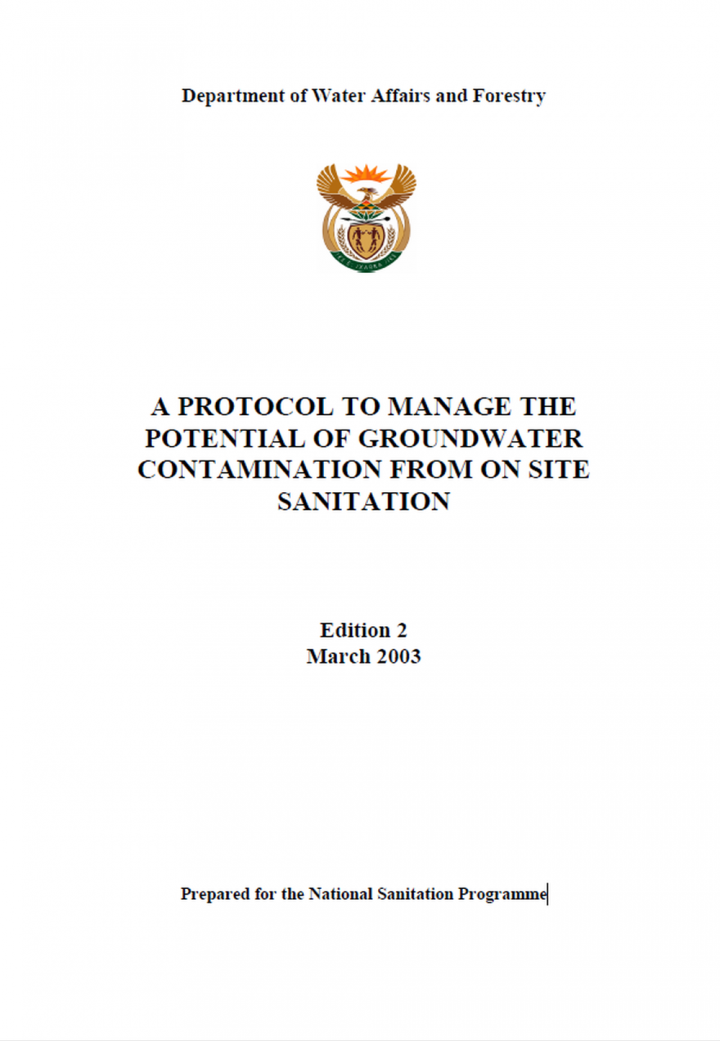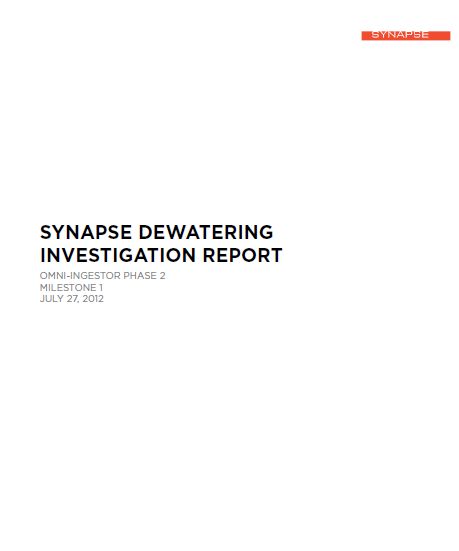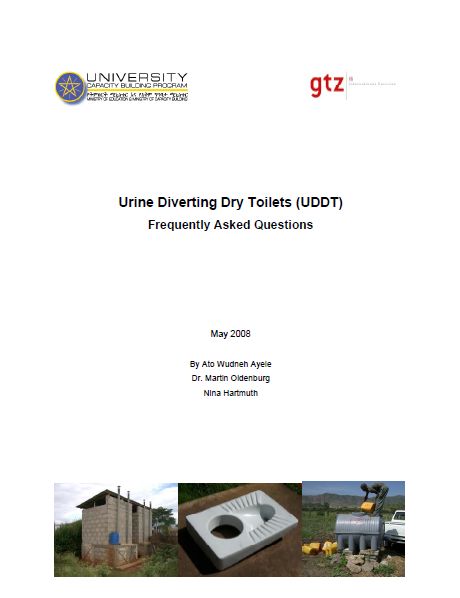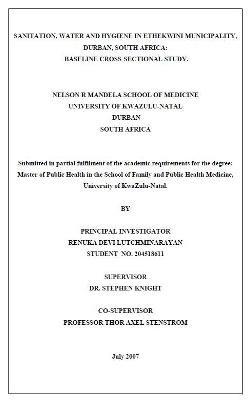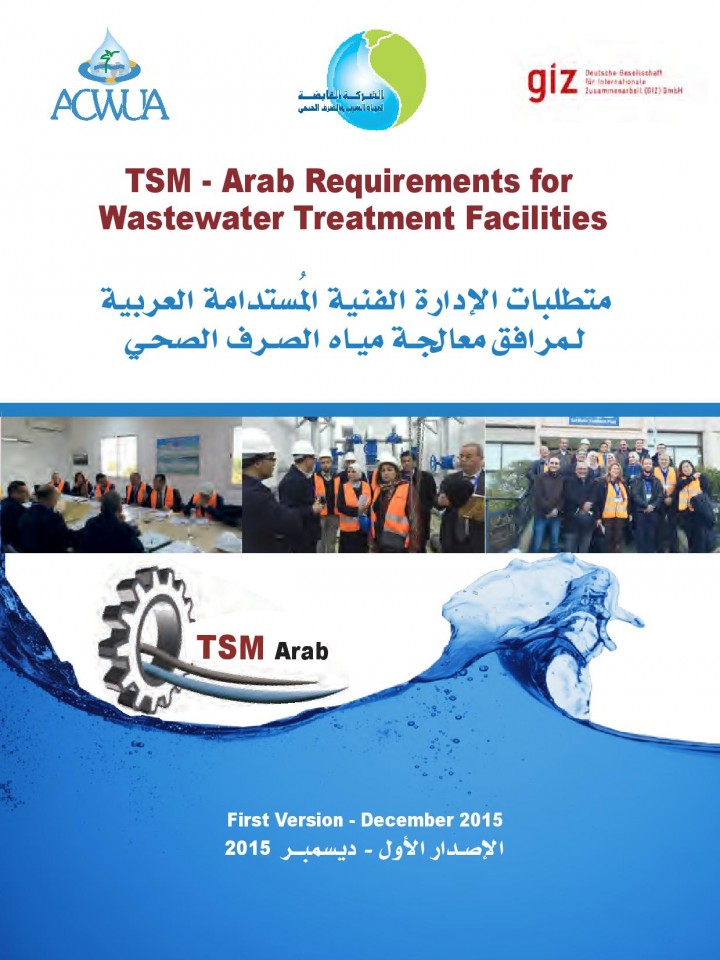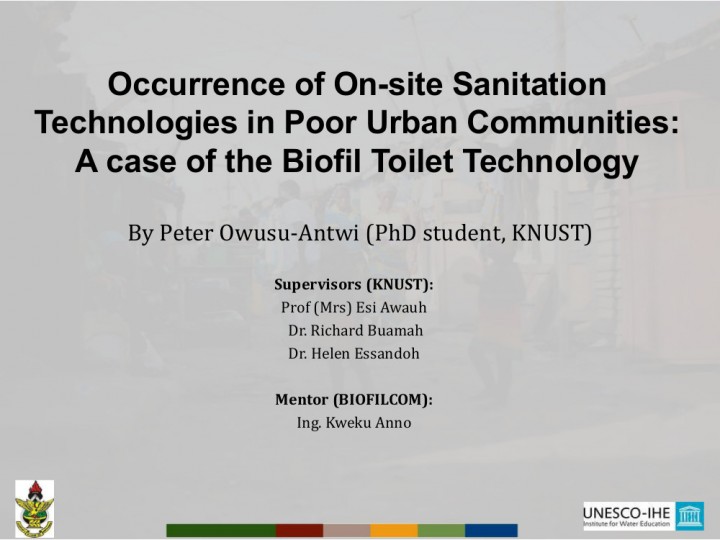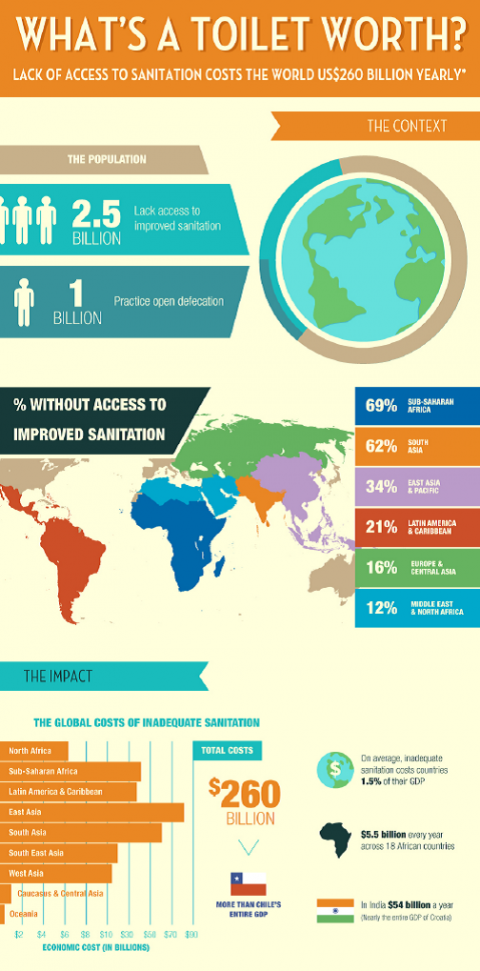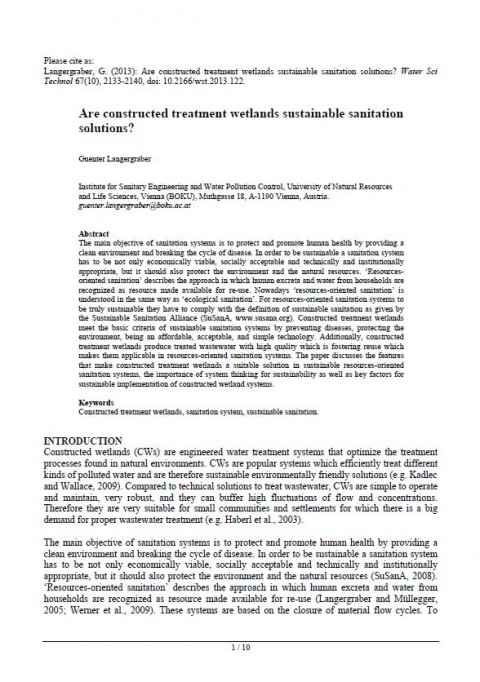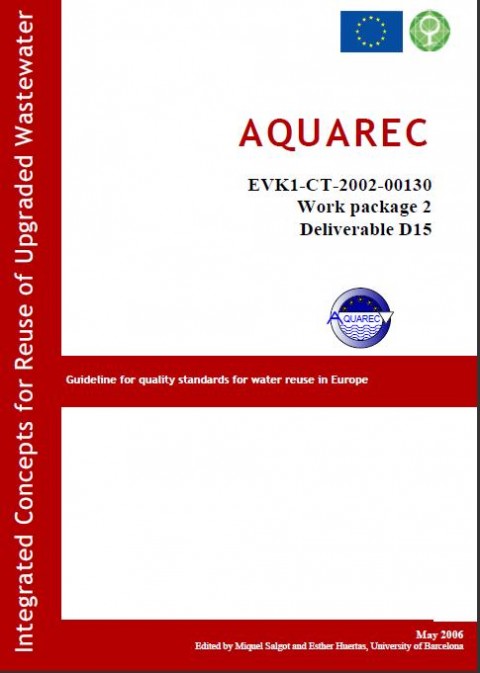Searching for information on Sanitation Workers?
The Sanitation Workers Knowledge + Learning Hub is the best source for all current news, trends, articles and updates on sanitation workers rights around the world.
Webinar sobre diferentes acciones y experiencias que se aplican en la gestión del agua con medidas de prevención, adaptación y mitigación al cambio climático realizado por SuSanA Latinoamérica. Con la moderación de Lourdes Valenzuela, coordinadora regional de SuSanA Latinoamérica y presentaciones de Bianca Corona, asesora técnica de GIZ en México, Gustavo Collere, gerente de …
A Bio-latrine is low maintenance system comprising a combination of a toilet and a bio-digester unit. It can be constructed using local materials and requires no machinery or fuel input other than human waste. This brief looks at the option of using bio-latrines, an on-site dry toilet technology which generates fertilising materials and fuel from the human excreta.
This discussion brief introduces a new tool being developed in the SEI Initiative on Sustainable Sanitation.
There is increasing interest in the concept of the circular economy and “closing the loop” in our use of various vital resources – including water, energy and mineral resources. This is driven not only by an interest in reducing the social and environmental damage linked to …
In 2016 the Toilet Board Coalition ran a feasibility study to explore the potential role of sanitation in the circular economy. The following questions were at the centre of our inquiry:
• Are there products or materials of value being upcycled from toilet resources?
• Are there scalable business models to deliver sustainable supply of these products to the market?
• Is there …
This report seeks to understand:
(1) the current state of girls’ experience with menarche and MHM in India,
(2) donor, government, NGO, and company responses to girls’ needs, and
(3) opportunities for research, advocacy, and programming to better address these needs.
This complements a Global Landscape Analysis and is one of three Country Landscape Analyses focused on India, Kenya, …
Research from past epidemics of the severe acute respiratory syndrome (SARS) caused by coronaviruses has suggested viruses are excreted in stools by infected human beings. They have been detected in sewage. Mapping where they were found can help determine if there were infections in a geographic area. This method has been used to keep tabs on polio and use of drugs, especially cocaine.
Traces …
Project implementers, practitioners and researchers within the areas of urban and rural ecological and sustainable sanitation, organic waste management and agricultural reuse participated in the International Conference on Sustainable Sanitation on 26-29 August 2007 in Dongsheng, China in order to share experiences and best practices. The presentations of this conference are available as PDF on …
• You, as a sanitation worker, are exposed to occupational health and safety hazards. The work involves risk of coming in contact with hazardous biological and chemical agents
• PPEs are a crucial barrier between you and disease-causing agents at the work site
• It has been observed that the usage of PPEs is low. Fellow sanitation workers of yours have shared major reasons for this- …
During the 2017 Stockholm World Water Week, SuSanA co-convened the event “Safely managed sanitation in small towns”.
As a UN Habitat report highlighted, “between 20 to 50% of the population in most low and middle income countries live in small urban centres or large villages with small urban centres characteristics”. Small towns are often too small to have conventional sanitation …
The Centre for Science and Environment (CSE) organised a two day workshop on “Mainstreaming Citywide Sanitation: Opportunities and Challenges for Excreta Management” from April 4-5, 2016 in New Delhi. The objective of the workshop was to promote active exchange of experiences of national and international opportunities and challenges in excreta management. The workshop was attended by over …
Technical Sustainable Management TSM (Arab) is a Quality Management System managed by the following stakeholders:
- ACWUA-WANT programme as financing and supervision of the TSM-Arab implementation.
- Arab Countries Water Utilities Association (ACWUA)
- TSM-Arab Task Force of ACWUA members quality management system)
- Holding Company for Water and Wastewater (HCWW) as consultant of the …

